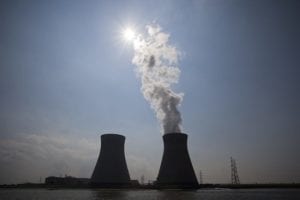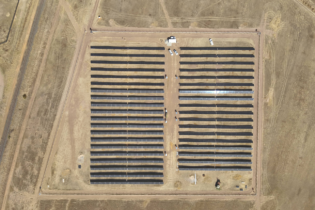 Following the State of Capture report released by former public protector Thuli Madonsela a week ago, Cabinet confirmed at the end of last week that Eskom will lead the country’s new nuclear power procurement drive.
Following the State of Capture report released by former public protector Thuli Madonsela a week ago, Cabinet confirmed at the end of last week that Eskom will lead the country’s new nuclear power procurement drive.
The decision was based on Eskom’s three decades of successfully running the Koeberg nuclear power plant in the Western Cape, which is also the only nuclear plant in Africa, Cabinet said in a statement.
Furthermore, it was announced that the energy department would be the co-ordinator of the nuclear build programme which is aimed at adding 9,600 kW of energy to the national grid.
Cabinet also approved the designation of the South African Nuclear Energy Corporation as the owner and operator of a planned multi-purpose reactor and nuclear fuel cycle.
Eskom’s role in nuclear power programme
Last month, Energy Minister Tina Joemat-Pettersson suggested Eskom take responsibility for funding the new nuclear programme and its procurement process.
Finance Minister Pravin Gordhan alluded to this decision in his medium-term budget policy statement last week, however the statement contradicted Eskom chief executive Brian Molefe’s stance that going nuclear was the only viable option to save South Africa from its power crisis.
The programme is likely to be very costly, and currently, there are no credible, government cost estimates available to the public. Many energy experts have also argued other energy sources may be cheaper or more appropriate.
Molefe has also been under intense scrutiny since the release of Madonsela’s report which shed light on his relationship with the Gupta family and Eskom’s link to the family’s Tegeta mining company.
Molefe offered to resign a day after the report was released and denied that he was involved in any wrongdoing.
Eskom’s finances
While many opponents of the nuclear programme have openly said that the country cannot afford to fund it, Eskom has now been tasked with doing so, taking the pressure off National Treasury.
From previous loans and debt guarantees, it is clear that the power utility has relied heavily on government support. Reports have indicated that since February 2016, Eskom held R350 bn of debt guarantees from National Treasury, of which it used R168 billion, and a previous eight-year-old loan worth R60 billion was written off.
Eskom has now said that it will have an excess of R150 billion in cash that it can use to fund the nuclear build programme.
OUTA demands new IRP before new nuclear programme commences
The Organisation Undoing Tax Abuse (OUTA) said that Joemat-Pettersson was allowing Eskom to drive a new nuclear build program in the absence of an updated and highly credible Integrated Resource Plan (IRP) on energy.
“An updated IRP is long overdue and decisions on new energy build programmes to motivate Eskom’s Nuclear and New Coal power production projects have made use of outdated demand and technology pricing of the IRP 2010-2030 report,” says Wayne Duvenage, OUTA’s chairperson.
A recent CSIR study has revealed that no new nuclear or coal fired power plants are required for South Africa.
OUTA said that based on the latest demand forecasts and pricing of renewable energy (solar, gas and wind), South Africa’s electricity needs will be more than catered for, as will the ability to reduce the nation’s electricity tariffs.
“Eskom’s executives under the leadership of Brian Molefe now need to explain why they are holding back on signing agreements with the Renewable Energy Independent Power Producer Procurement Program,” OUTA said in a statement. “Eskom’s actions and recent talk of rushing into the nuclear decision, amidst the evidence from the CSIR study, points to a state owned entity acting outside the best interests of the public.”
“The state capture report recently released by the public protector also indicates questionable conduct by Eskom’s executives, which point to the irrationality of the nuclear decision,” it added.
OUTA said it will be presenting its civil society call to Joemat-Pettersson to halt all future new energy requirement decisions, “until the credible, transparent and rational IRP update process has been conducted, failing which the minister may be accused of being remiss in her duties and responsibilities to the nation.”
 Following the State of Capture report released by former public protector Thuli Madonsela a week ago, Cabinet confirmed at the end of last week that Eskom will lead the country’s new nuclear power procurement drive.
Following the State of Capture report released by former public protector Thuli Madonsela a week ago, Cabinet confirmed at the end of last week that Eskom will lead the country’s new nuclear power procurement drive.






